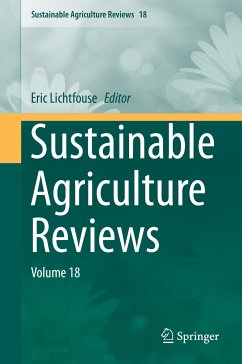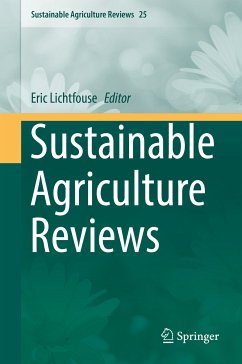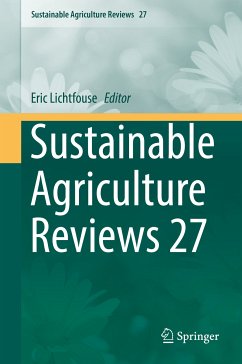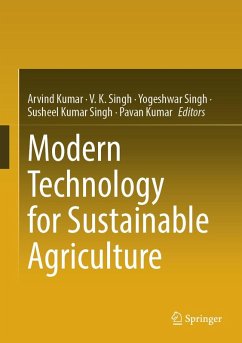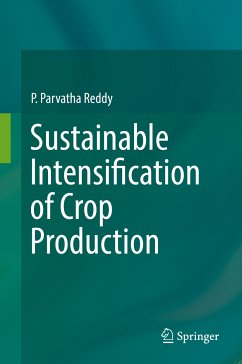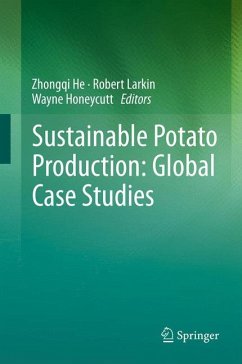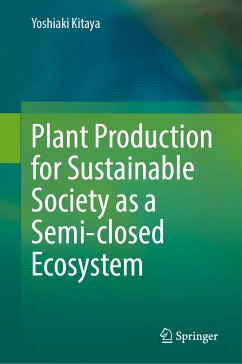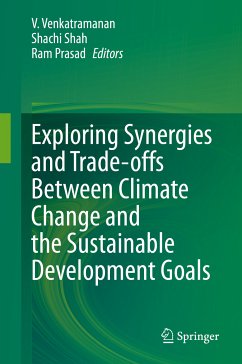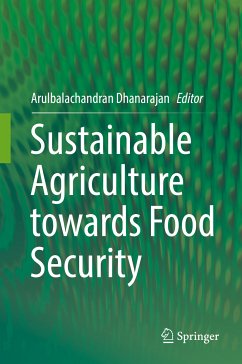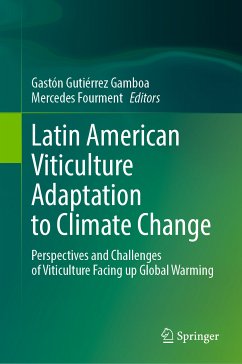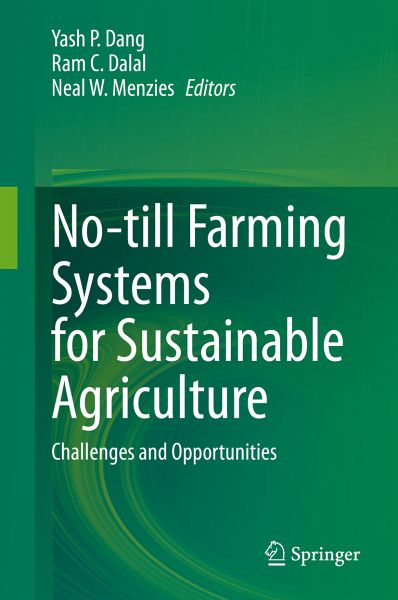
No-till Farming Systems for Sustainable Agriculture (eBook, PDF)
Challenges and Opportunities
Redaktion: Dang, Yash P.; Menzies, Neal W.; Dalal, Ram C.
Versandkostenfrei!
Sofort per Download lieferbar
136,95 €
inkl. MwSt.
Weitere Ausgaben:

PAYBACK Punkte
68 °P sammeln!
This book is a comprehensive summary of current global research on no-till farming, and its benefits and challenges from various agronomic, environmental, social and economic perspectives. It details the characteristics and future requirements of no-till farming systems across different geographic and climatic regions, and outlines what is needed to increase the uptake of no-till farming globally.Over 35 chapters, this book covers in detail the agronomic and soil management issues that must be resolved to ensure the successful implementation of these systems. Important economic, environmental,...
This book is a comprehensive summary of current global research on no-till farming, and its benefits and challenges from various agronomic, environmental, social and economic perspectives. It details the characteristics and future requirements of no-till farming systems across different geographic and climatic regions, and outlines what is needed to increase the uptake of no-till farming globally.
Over 35 chapters, this book covers in detail the agronomic and soil management issues that must be resolved to ensure the successful implementation of these systems. Important economic, environmental, social and policy considerations are discussed. It also features a series of case studies across a number of regions globally, highlighting the challenges and opportunities for no-till and how these may vary depending on climate and geopolitical location.
This book is a remarkable compilation by experts in no-till farming systems. The promotion and expansion of no-till farming systems worldwide will be critical for food security, and resource and environmental sustainability. This is an invaluable reference for both researchers and practitioners grappling with the challenges of feeding the world's rising population in an environment increasingly impacted by climate change. It is an essential reading for those seeking to understand the complexity of no-till farming systems and how best to optimise these systems in their region.
Over 35 chapters, this book covers in detail the agronomic and soil management issues that must be resolved to ensure the successful implementation of these systems. Important economic, environmental, social and policy considerations are discussed. It also features a series of case studies across a number of regions globally, highlighting the challenges and opportunities for no-till and how these may vary depending on climate and geopolitical location.
This book is a remarkable compilation by experts in no-till farming systems. The promotion and expansion of no-till farming systems worldwide will be critical for food security, and resource and environmental sustainability. This is an invaluable reference for both researchers and practitioners grappling with the challenges of feeding the world's rising population in an environment increasingly impacted by climate change. It is an essential reading for those seeking to understand the complexity of no-till farming systems and how best to optimise these systems in their region.
Dieser Download kann aus rechtlichen Gründen nur mit Rechnungsadresse in A, B, BG, CY, CZ, D, DK, EW, E, FIN, F, GR, HR, H, IRL, I, LT, L, LR, M, NL, PL, P, R, S, SLO, SK ausgeliefert werden.



